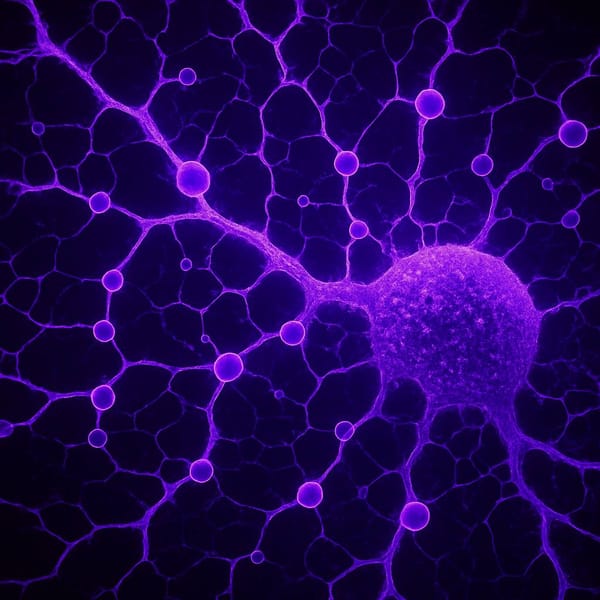The Human Urge to Simplify: Why Binary Thinking Rules Our Narratives

And how embracing complexity can change your brain, your relationships, and your culture
In true crime stories, public discourse, and even our closest relationships, we often reduce complexity to binaries: good or evil, victim or perpetrator, right or wrong. But why?
The answer lies deeper than opinion. It lives in the nervous system, in our trauma histories, and in how our institutions are built to reward simplicity.
I. The Brain Loves Certainty
When you’re stressed or overwhelmed, your brain isn’t trying to be fair—it’s trying to feel safe.
1. Your Nervous System Seeks Control
The autonomic nervous system, especially when dysregulated by chronic stress or trauma, sees ambiguity as danger.
- In these states, the prefrontal cortex (which handles nuance and empathy) shuts down.
- Simpler brain structures take over: “threat or not?”
- This is described in Polyvagal Theory by Stephen Porges, which maps how trauma narrows cognition.
2. Trauma Turns Pain Into Story
When we can't make sense of what happened, our minds create roles to restore order: victim, villain, rescuer.
- This isn’t weakness. It’s survival.
- But it can block empathy, especially when we fix others into one-dimensional roles.
3. Nuance is Metabolically Expensive
The human brain uses System 1 (fast, binary) and System 2 (slow, complex) thinking.
- Most people default to System 1 because our cognitive resources are drained—by stress, screens, and social pressure.
- As Daniel Kahneman explains in Thinking, Fast and Slow, we are biologically wired to prefer shortcuts.
II. Institutions Reward Simplicity
It’s not just personal. Our society is structured around either/or narratives.
4. Media & Law Reinforce Clear Roles
Crime reporting, courtroom trials, and political messaging often demand:
- Guilty or innocent
- Good guy or bad guy
This makes stories “legible,” but reality is rarely that clean.
5. Education Penalizes Ambiguity
From kindergarten onward, we’re taught to find the right answer—not to sit in paradox.
- Ambiguity is often equated with confusion or error.
- We are trained to fear complexity instead of cultivating it.
III. The Personal Cost of Simplifying
When we lose nuance, we lose intimacy—with ourselves and others.
6. Projection: The Psychological Escape Hatch
Binary thinking lets us cast our shadow outward.
- We call others monsters so we don’t have to meet the parts of ourselves we’ve exiled.
- In true crime and cancel culture, this projection is not just individual—it becomes viral.
7. Relationships Break Without Nuance
Without complexity, intimate bonds become a tug-of-war:
- “You’re either with me or against me.”
- We idealize then devalue. We fail to hold shared hurt or contradiction.
IV. Complexity as a Radical Act
To hold paradox is not just personal growth—it’s cultural resistance.
8. Complexity Requires Regulation
According to Polyvagal Theory:
- A regulated nervous system can hold tension, uncertainty, and paradox.
- Breathwork, ritual, and co-regulation help us become safe enough to stay with the messy middle.
9. Embracing Paradox Heals
Writers like Anzaldúa, Keating, and Mezirow have long argued that:
- Liberation begins where oppositional thinking ends.
- Growth happens through relational accountability, not blame.
V. Why It All Matters
Neuroscience shows:
- Integrative complexity (measured in psychology) is linked to better decision-making, lower prejudice, and emotional maturity.
Trauma theory shows:
- Grief that’s allowed to exist alongside compassion becomes ritual, not resentment.
Cultural transformation needs:
- A move from “monsters and martyrs” to interdependent selves capable of love, conflict, rupture, and repair.
VI. Practices to Hold More Complexity
Here are practical tools you can use:
1. Notice When You Simplify
Ask: “Am I collapsing this story to avoid discomfort?”
🌬 2. Down-Regulate Your Nervous System
Try:
- Breathwork (4-7-8 method)
- Cold water immersion
- Sitting with trees or earth
Regulation creates cognitive spaciousness.
3. Practice Dialectical Thinking
Journal or speak aloud:
- “What’s also true here?”
- “What don’t I want to see about this person/situation?”
4. Shift the Cultural Conversation
In your writing, storytelling, and relationships:
- Name the nuance.
- Refuse to flatten people into categories.
- Be honest about your discomfort—and stay in it.
Where This Changes Everything
In True Crime:
- The best stories are those that honor systemic roots—bullying, neglect, poverty, untreated illness—not just the spectacle of violence.
In Relationships:
- Every human carries grief and beauty.
- Harm and care can coexist.
- Nuance doesn’t excuse—it creates space for responsible love.
Suggested Resources
- Stephen Porges, Polyvagal Theory
- Daniel Kahneman, Thinking, Fast and Slow
- Suedfeld et al., Integrative Complexity Studies
- George Lakoff, Moral Politics
- Sara Ahmed, The Cultural Politics of Emotion
🌍 A Call to Cultural Alchemy
Binary thinking protects us—but at the cost of our full humanity.
Complexity is regenerative. It heals trauma.
It deepens empathy.
It makes room for real justice, not just retribution.
To live complexly is to live courageously.




